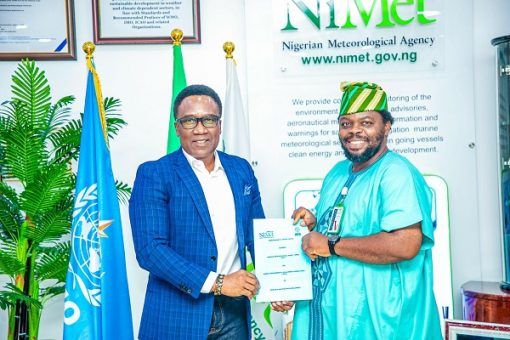
In a significant step toward climate resilience and agricultural sustainability, the Nigerian Meteorological Agency (NiMet) has signed a renewed Memorandum of Understanding (MoU) with the Human and Environmental Development Agenda (HEDA) to enhance access to climate and weather information for smallholder farmers across Nigeria.
The agreement, announced in a statement from NiMet’s media office on Wednesday, was formalized at the agency’s headquarters in Abuja. It underscores a deepened commitment between both institutions to support rural communities with critical agro-meteorological data that can improve food security and safeguard livelihoods.
Building on an existing collaboration that began in 2010, the renewed MoU aims to scale up the dissemination of timely, localized climate information to empower farmers to make informed decisions amid increasing climate variability.
Present at the signing ceremony were HEDA’s Executive Secretary, Mr. Sulaimon Arigbabu, and the Legal and Liaison Officer, Miss Tonye Dappa, who commended NiMet’s Director-General and CEO, Professor Charles Anosike, for his visionary leadership and continued support for climate-inclusive development.
In his remarks, Professor Anosike emphasized the importance of partnerships in bridging the gap between climate science and grassroots action. He also offered NiMet’s broadcasting and studio facilities for the co-production of tailored educational content aimed at enhancing climate literacy among farming communities.
“The success of climate adaptation depends largely on how well we communicate science to the people who need it most—our farmers,” Anosike stated. “This partnership strengthens our shared mission of making accurate weather and climate data accessible to all.”
According to the statement, the enhanced collaboration is designed to bolster early warning systems, promote climate-smart agricultural practices, and improve disaster preparedness in vulnerable regions.
It also aims to improve national resilience to climate impacts, ensuring that even the most remote farming populations receive accurate, actionable climate data through user-friendly channels.
“Both NiMet and HEDA reaffirm their shared vision of inclusive and equitable access to climate information, recognizing its vital role in achieving sustainable development and food security,” the statement concluded.





